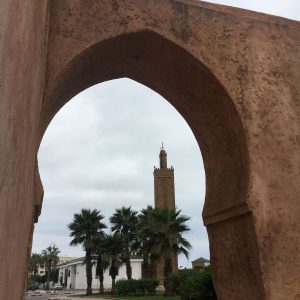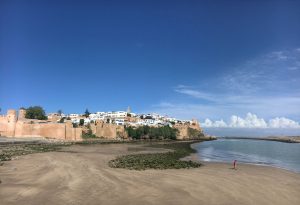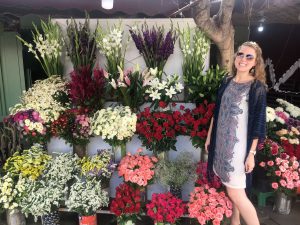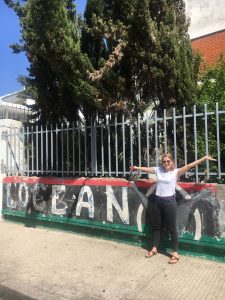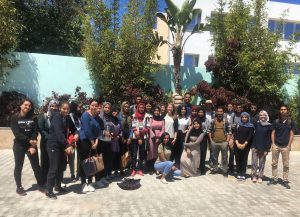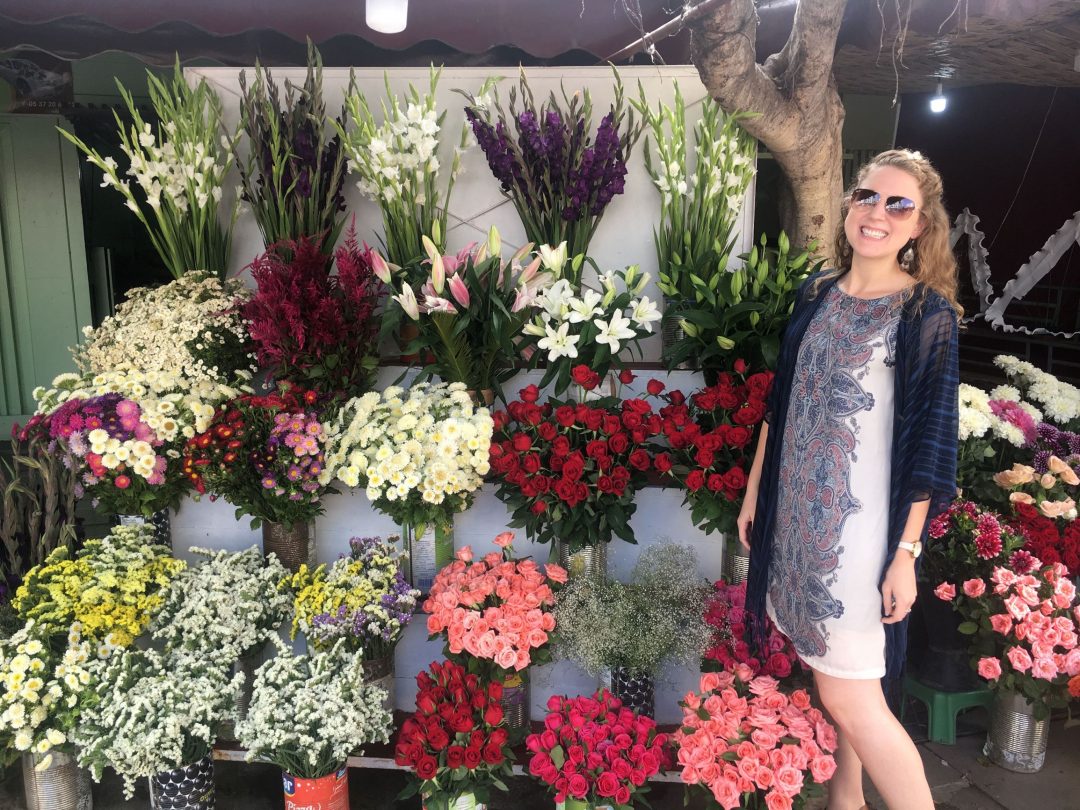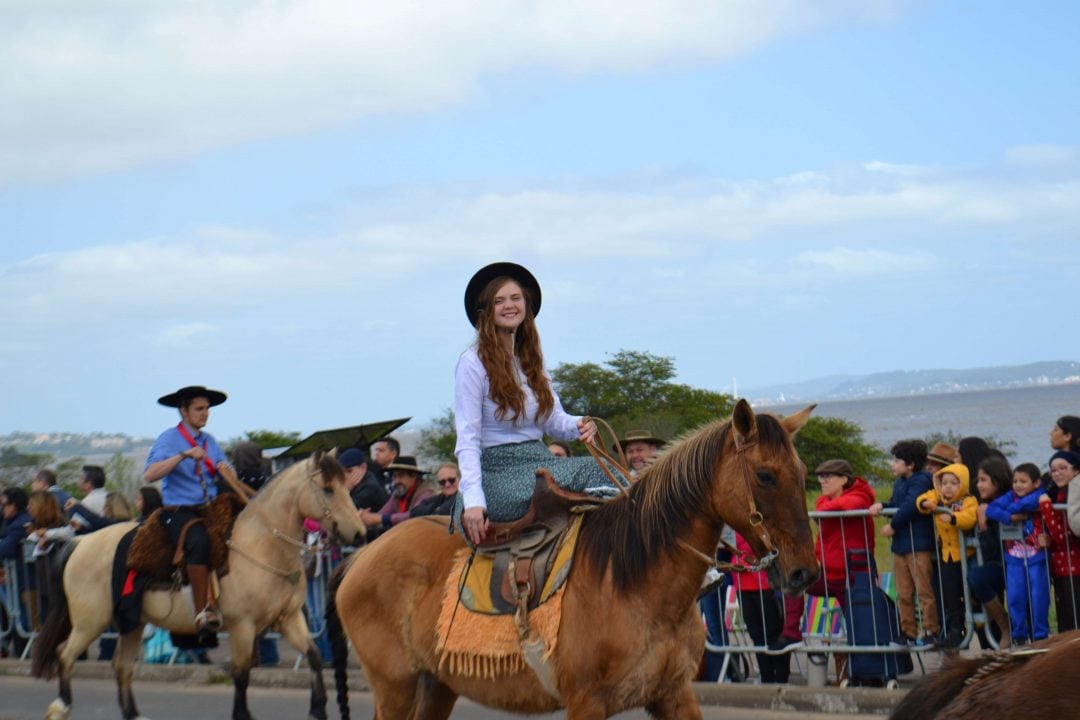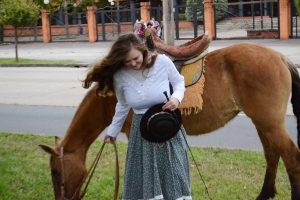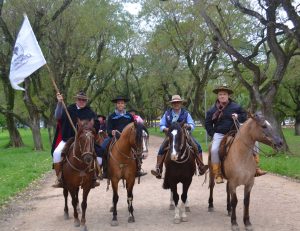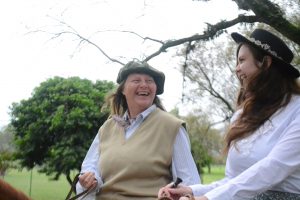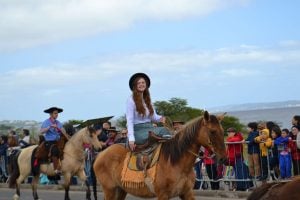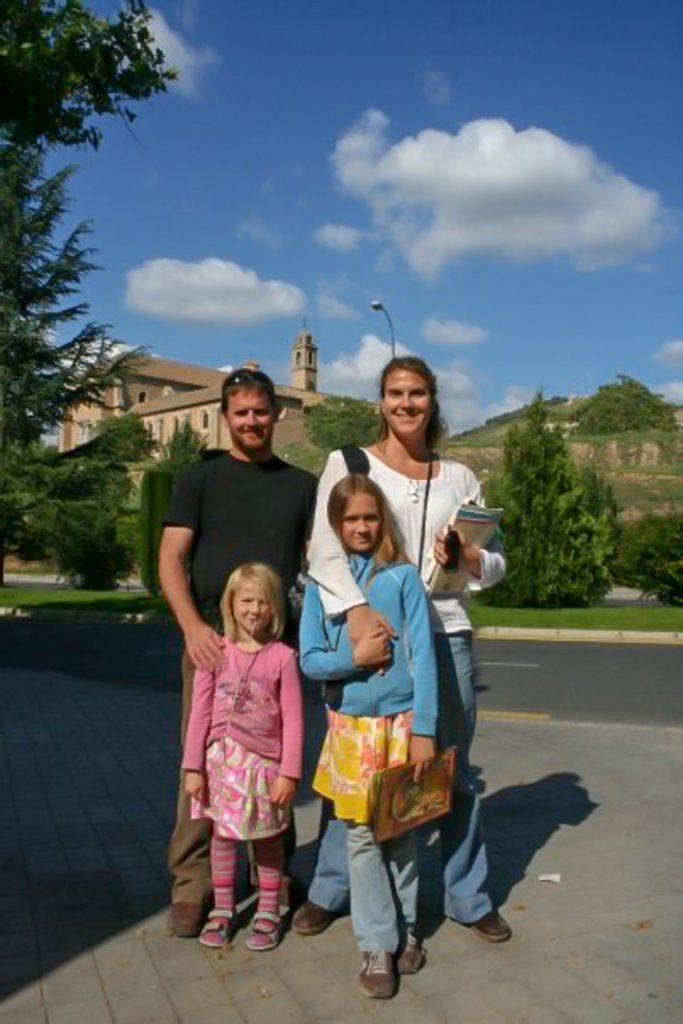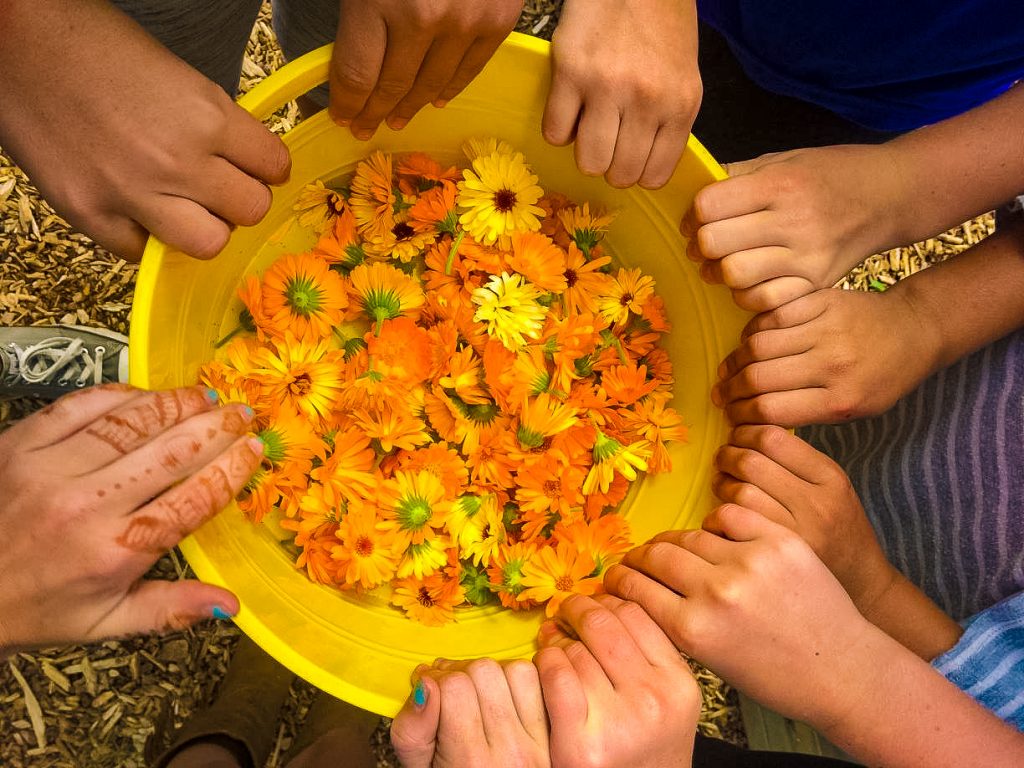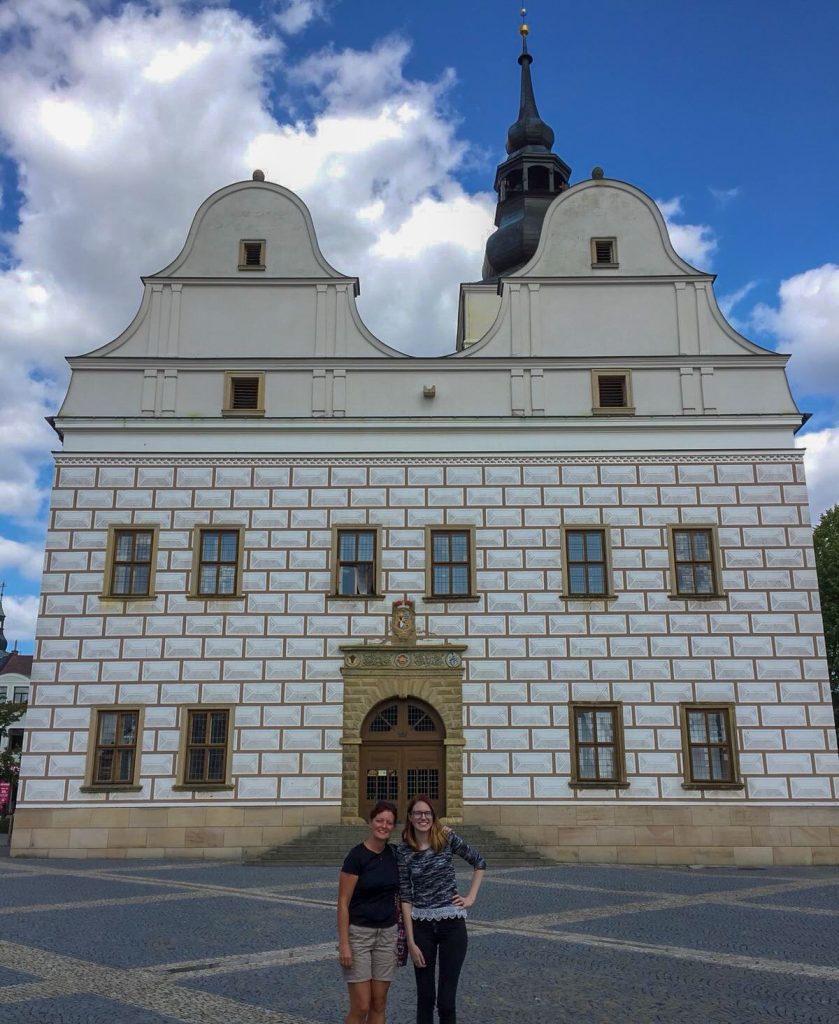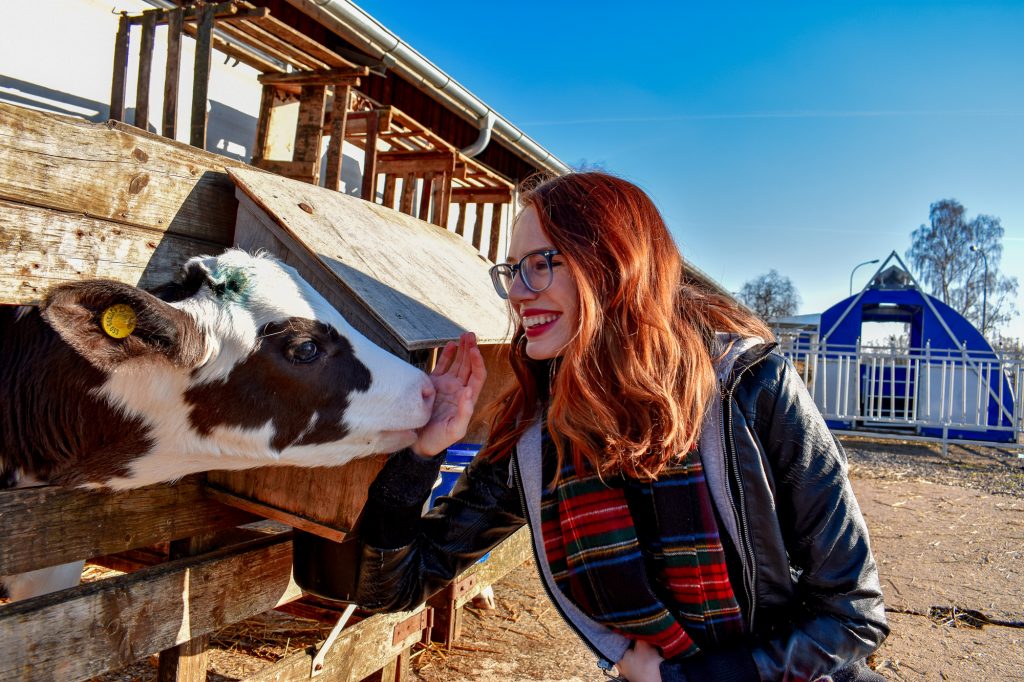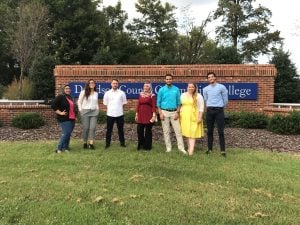
International students pose outside DCCC.
We spoke with Suzanne LaVenture, Director of International Education and Faculty at Davidson County Community College (DCCC) about how the Fulbright Program helped transform the semi-rural North Carolina community college, cultivating a global outlook on campus.
Davidson County Community College (DCCC), situated among green rolling hills and forests an hour away from Charlotte, NC, is a standout among community colleges across the United States for its level of international engagement. Beginning with the college’s first engagement with the Fulbright Program, DCCC has benefited from a range of grants, institutional partnerships and global connections.
“Fulbright brings the world to DCCC,” says Suzanne LaVenture, Director of International Education & Faculty. “By having international students and Fulbright scholars on our campus, it gives all our students a chance to meet people from all over the world and learn about different cultures.”
To this day, the Fulbright Program remains a central pillar of DCCC’s international engagement activity. In August, two new Fulbright Foreign Language Teaching Assistants (FLTAs) will arrive on campus, bringing the FLTA total to 14 over the past eight years. Lately, the institution sent three campus leaders abroad with the Fulbright International Administrators Seminar program, and between 2008-2010 DCCC welcomed three Fulbright Scholars in Residence, two from China and one from Macedonia.
Breaking New Ground
DCCC’s international engagement accelerated in 2010, when Suzanne’s role was created. The college now offers four to five study abroad trips each year, helping U.S. students experience new cultures and countries.
“I think many community colleges don’t know about the opportunities that the Fulbright Program offers, or think that the return on investment of putting all the time and effort of filling out the applications will not pay off for them,” Suzanne says. “However, I would encourage interested community colleges to be persistent and apply for available Fulbright opportunities.”
Furthering the reach and impact of the international exchange network, DCCC does not work in isolation, but rather engages with a range of partners to support study abroad.
“One of the primary challenges for community colleges in promoting study abroad opportunities has been getting enough students interested to make [a given program] financially viable,” Suzanne says. “That is one reason why we often work in consortia.”
As Suzanne explains, the college recognizes that DCCC students face barriers to participating in study abroad. Many students have families, jobs and other responsibilities that prevent them from going abroad, so the college does what it can to lessen the burden of costs and scheduling conflicts. Hosting visiting Fulbrighters at DCCC has brought the world to the campus, and also serves as a living advertisement for study abroad.
Fulbright: a Springboard for Other Opportunities
For the past six years, the college has worked with the Institute of Study Abroad Ireland to run a popular spring break trip to Ireland. More recently, DCCC received capacity-building grants from the State Department to develop study abroad programs in Guatemala and South Africa, first implementing a service-learning program in Guatemala targeted to nursing students in coordination with Central Piedmont Community College (CPCC). While developing these programs, DCCC tailored these initiatives to be compatible with the Department of State’s Benjamin A. Gilman Scholarship program, to provide extra incentive for students to consider studying abroad. The Gilman Program provides scholarships to U.S. undergraduates with financial need for study abroad, including students from diverse backgrounds and students going to non-traditional study abroad destinations.
Recently, DCCC applied for the same capacity building grant to develop a study abroad program with Central Piedmont in South Africa. The program will offer service learning opportunities for nursing and allied health, and zoo and aquarium science students, and aim to recruit minority male students.
Along with Guilford Technical Community College and Forsyth Technical Community College, DCCC has also twice received a State-Department-managed 100,000 Strong in the Americas grant to develop a study abroad program in Argentina along with Universidad Nacional de Villa María. U.S. students have gone to Argentina for the past two years, and Argentinian students visited the DCCC campus in March.
To encourage more students to think internationally, DCCC launched the Scholars of Global Distinction program in fall 2013. To earn this distinction on their transcript, students must complete 15 credit hours of globalized courses, attend eight Passport events, and must have a global experience – either study abroad or a local-global experience. As of the past semester, 100 DCCC students completed all the requirements, becoming Scholars of Global Distinction.
While DCCC was the first community college in North Carolina to start Scholars of Global Distinction, now more than 20 colleges offer this program. To implement programming, the college works with World View at the University of North Carolina, Chapel Hill, which serves as a convening organization for colleges in the state interested in global learning.
Leveraging On-Campus Ingenuity
Much of DCCC’s international activity outreach and coordination has occurred through innovative, in-house support – ensuring broader awareness on the campus of DCCC’s international programming, while also reducing program costs. DCCC’s digital media instructor and his students created a video to promote the college’s study abroad programs, and a computer instructor and his students created a database for Suzanne and her team to track students in the Scholars of Global Distinction program.
DCCC’s efforts to promote study abroad by its students comes full circle in the personalized support it continues to provide its visting Fulbrighters. FLTAs not only benefit from a warm welcome by DCCC administration – which includes a campus buddy system to ensure Fellows are able to more easily integrate into campus life, but also benefit from DCCC’s ingenuity. The campus provides the FLTAs accommodation at the energy efficient “Green House,” a historical house across the street from the campus renovated by DCCC very own heating and air-conditioning students. In addition, DCCC allows eligible FLTAs to use of one of the college’s fleet of vehicles to get around during their award period. Finally, Suzanne has invited each cohort of FLTAs to her house for Thanksgiving and acted as their cultural liaison throughout the duration of their time at DCCC.
Given the barriers that DCCC overcame to cultivate a global outlook on campus, Suzanne believes that if DCCC can internationalize, other institutions can too. “I always say that the moral of the DCCC story is that if we can do it, anybody can,” she says.
